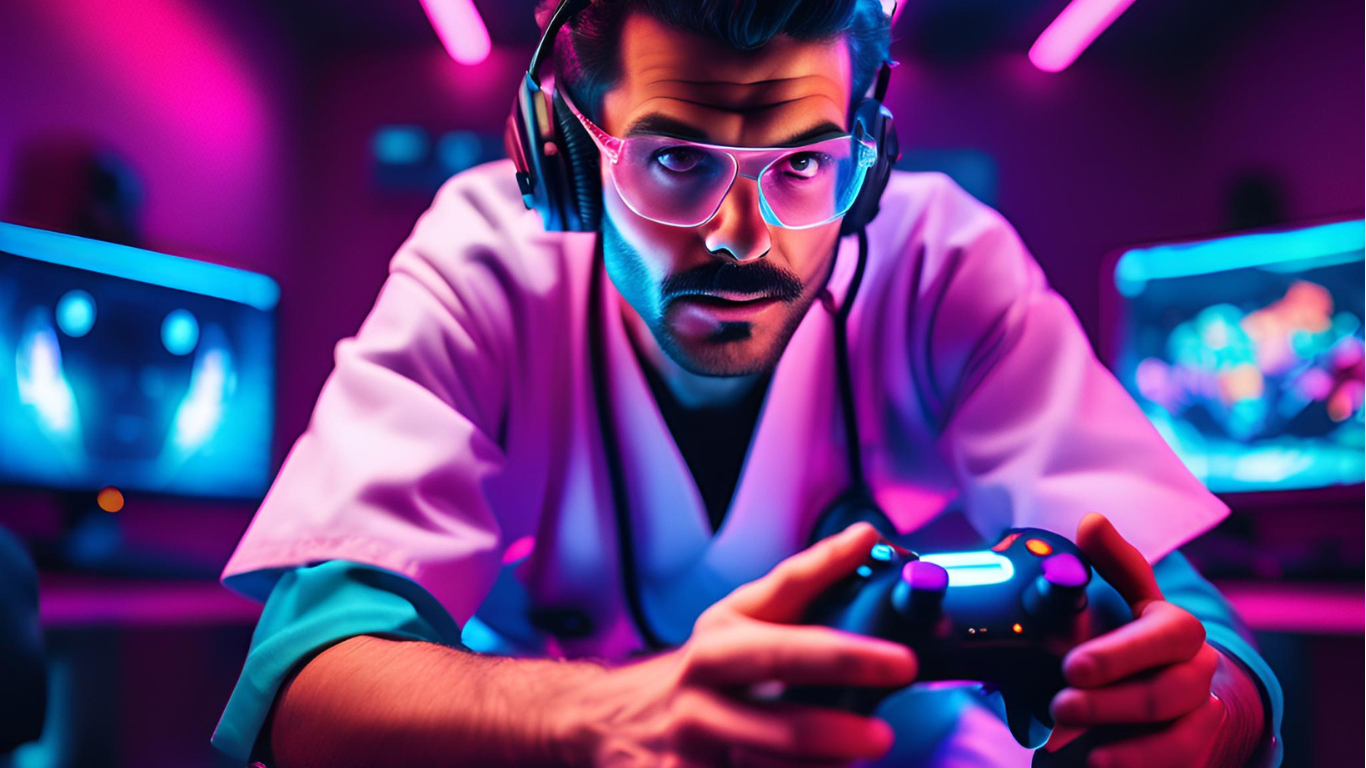Do gamers make better surgeons? This surprising idea has roots in recent studies showing how gaming sharpens skills crucial to surgery—think hand-eye coordination, reaction time, and even the ability to focus on multiple tasks simultaneously. These skill are needed for novel surgeries like when recently a genetically modified pig kidney was transplanted to a human. For medical students and junior doctors, understanding how these skills translate to surgical performance could redefine traditional training approaches. Let’s dive into why picking up a game controller might just be a modern-day exercise in surgical precision!
The Link Between Gaming and Surgical Skills
Over the past few decades, video games have developed a reputation for improving motor skills and reaction times. But in recent years, studies have taken this one step further by examining the impact of gaming on complex skill sets like those required in surgery. Research shows that surgeons who gamed frequently made up to 37% fewer errors, completed tasks 27% faster, and performed 42% better overall than non-gaming counterparts.
So, what’s going on here? Games—especially those involving precision, multitasking, and hand-eye coordination—train players to think critically while executing fine motor tasks under pressure. When performing laparoscopic procedures, for example, these very skills can mean the difference between a smooth operation and one with complications. Gamers make better surgeons through “practice” with these abilities in a fun, low-stakes environment.
Gaming vs. Traditional Training: What Sets It Apart?
In the context of surgical training, traditional practice involves repetitive simulations, sometimes using cadavers or specialized dummies. This form of training, while effective, can be difficult to sustain, and it doesn’t always replicate the “high-stakes” pressure of an actual surgery. Video games, however, present scenarios requiring quick thinking and precise actions, emulating these critical components.
Video games offer an immersive experience that can mirror the same hand-eye coordination and split-second decisions required in surgery. Comparatively, gaming provides a form of “skill exercise” that’s often missing in conventional training methods. Rather than just repeating surgical steps, video games train for specific actions—timing, reaction speed, and accuracy—that surgery often demands. Furthermore, studies indicate that time spent gaming has a stronger impact on skill development than the number of years a person has trained. That means addicted competitive gamers make even better surgeons.
Video Games and Reduced Surgical Errors
One of the most impressive findings from these studies is the significant reduction in surgical errors among gamers. For medical professionals, error reduction translates to better patient outcomes and fewer complications. In a surgical setting, small mistakes can have serious consequences, so precision is key. Surgeons who game regularly not only perform procedures faster but also exhibit greater accuracy.
Error reduction may result from the enhanced ability to focus under pressure, a skill refined through gaming. Games create a controlled environment where players must adapt to multiple variables, similar to the unpredictability of surgery. The cognitive flexibility developed from such gaming experiences could be why surgeons with gaming experience tend to make fewer errors. This effect could potentially save lives by minimizing the chances of accidental incisions or missed steps in critical procedures.
Why Video Game Mechanics Matter
Not all games provide the same benefits. The mechanics and design of a game can significantly affect the types of skills that are enhanced. For example, fast-paced action games, especially those requiring hand-eye coordination, quick reflexes, and spatial awareness, are most effective in preparing for surgical tasks.
Moreover, games could be designed with specific objectives in mind to develop skills directly translatable to surgical procedures. For instance, using game controllers that mimic surgical tools, like laparoscopic instruments, could create a realistic practice scenario. A study showed that surgeons with strong video game skills made fewer errors and operated more efficiently than others with the same traditional training. Developing controllers and game mechanics that replicate surgical tasks could bridge the gap between gaming and actual surgery even further, making it an innovative and cost-effective addition to surgical training.
Implications for Future Surgical Training
Video games might be a fun part of our culture, but they have serious applications in training and education. As technology advances, gaming could become an integral component of medical training, especially for procedures involving robotic or laparoscopic surgery. Video games are affordable, widely available, and portable—meaning medical students and junior doctors could practice skills outside of a lab setting.
Imagine a future where medical training programs include game-based exercises designed specifically for fine motor skills and surgical precision. Medical students could even face simulated emergency situations, enhancing their readiness for real-world challenges. Integrating video game mechanics into medical education offers the possibility to enhance learning outcomes, engage students, and make training more adaptable to the fast-evolving demands of the medical field.



Leave a Reply